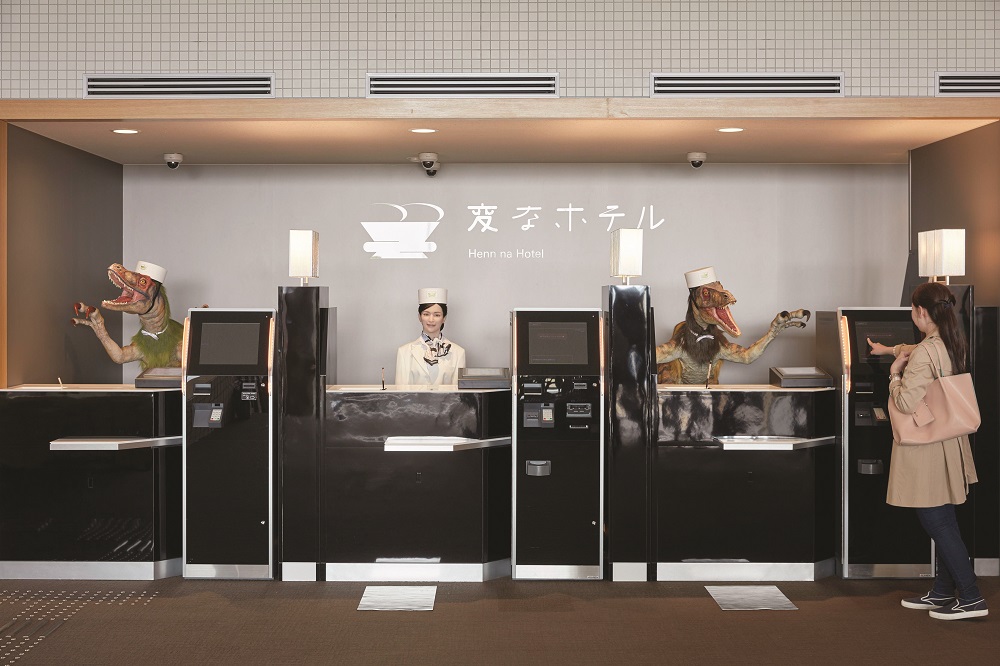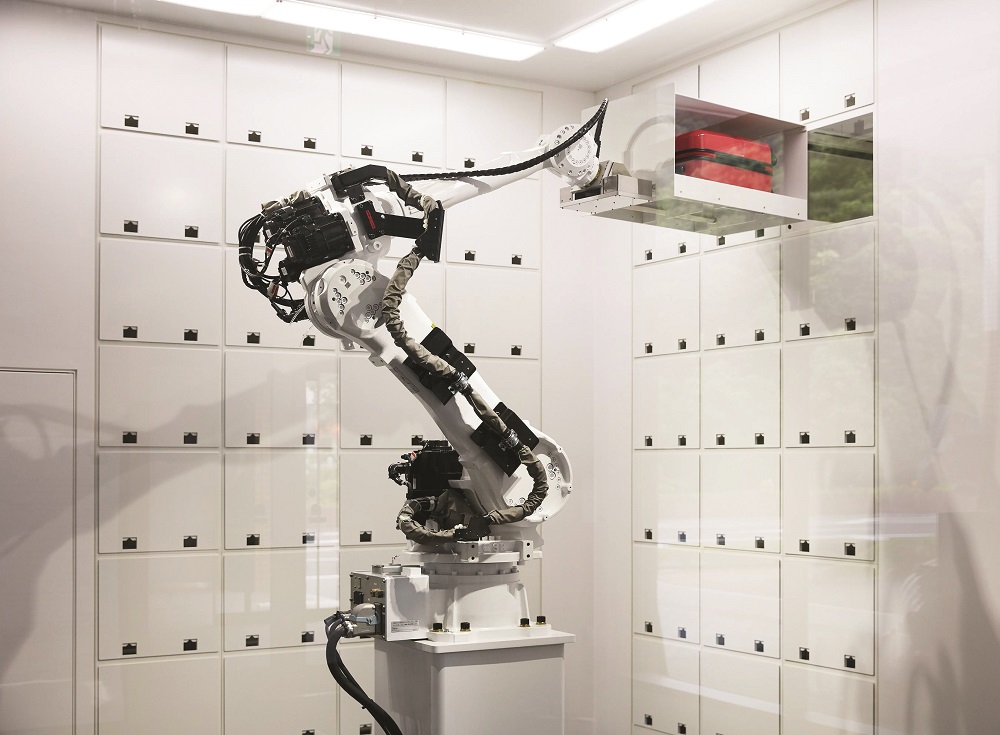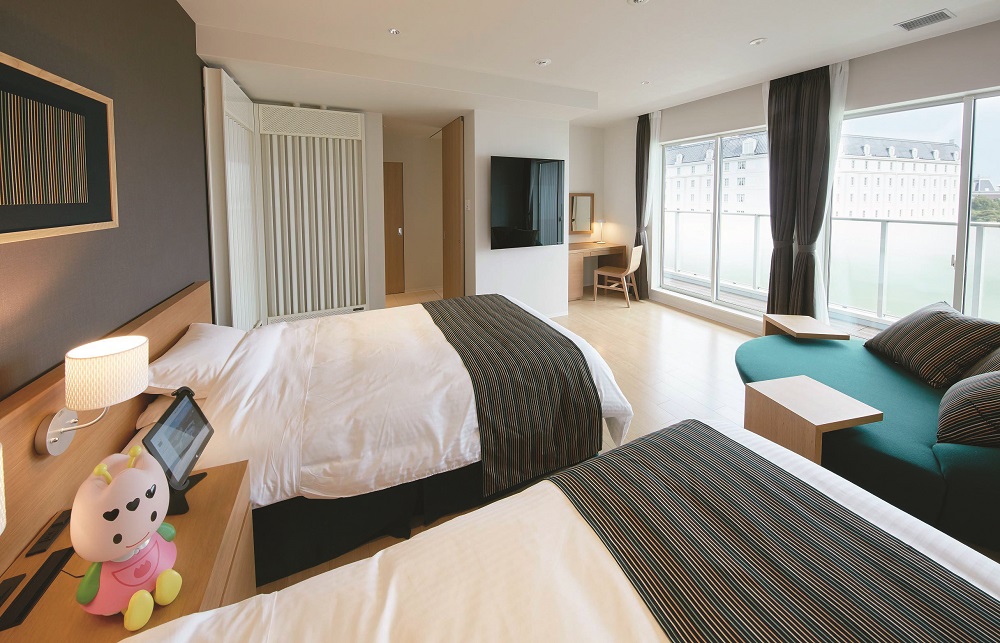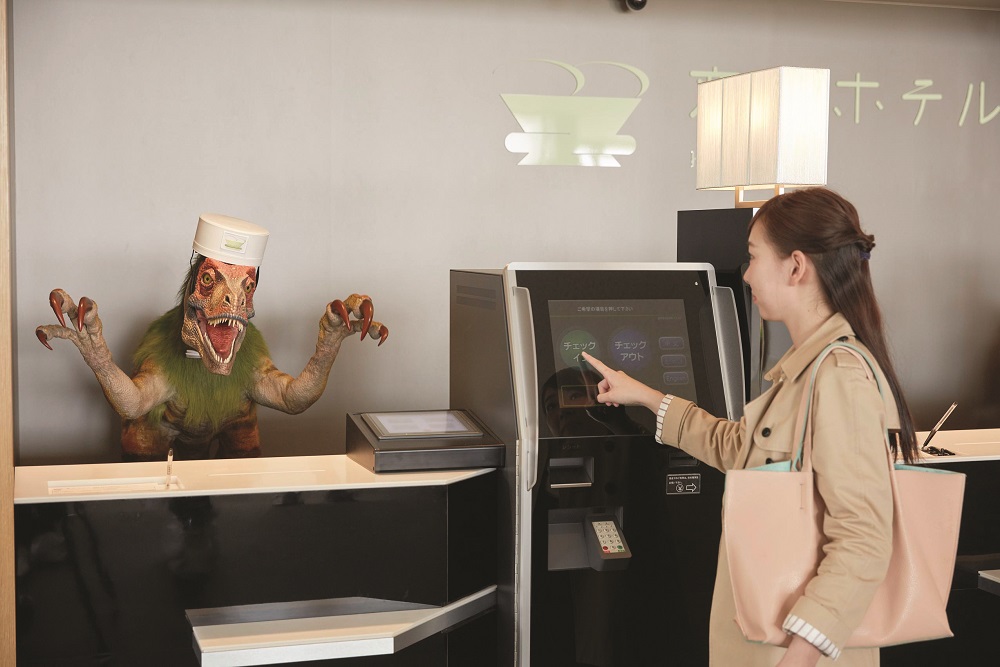Hideo Sawada, Chairman of H.I.S. Co and CEO of HUIS TEN BOSCH Co, shares with Fatima de la Cerna of Climate Control Middle East, the reason behind the decision to open a hotel run almost entirely by robots. He also talks about radiant panel air conditioning system and how using it helps Japan’s Henn-na Hotel achieve what he calls the “ultimate in efficiency” while offering its guests “comfort that lies beyond the ordinary”.

Image courtesy: HUIS TEN BOSCH Co
Could you give us a brief background on Henn-na Hotel? How long has it been in operation?
This hotel started from the concept of ‘overturning common sense’ or going beyond the ordinary. For any hotel, cutting costs, especially in relation to wages and energy bills, is a serious problem. So we thought that we can overcome the problem by using robots instead of hiring human staff and by using renewable energy. Moreover, it has become difficult in Japan to find and retain human resources for the service industry because of low birth rate and an ageing society. Using robots instead of people is an alternative – a new way of hotel management.
There is a shortage of hotels not only in Japan but also in the world. The way we saw it, if we could build them within a short period of time at a low cost, we would be able to provide hotel rooms at a reasonable price. We started this project with the intention of building hotels outside the city, where basic infrastructure has not been constructed. The hotel opened in July 2015. The name Henn-na Hotel reflects our commitment to evolution, because one of the meanings of ‘Henn’ is ‘to change’. We believe in using the latest technologies, and technology is always changing.
What are the pros and cons of having robots attend to your guests? What kind of feedback have you received from your guests since you opened?
Radiant panel conducts heat from material to material without influencing the surrounding air
Hospitality is a little poorer with robots than with human staff, but the ability to give the same quality of service is a strong point. And guests who do not need personalised service express a preference for ‘robot’ service. Usually, guests who stay at our hotel are those who are interested in the experience of communicating with robots. So when they come, they tend to have a look of wonder and excitement. Since it is the first robot hotel in the world, our guests are able to enjoy the ‘near-future’.

Image courtesy: HUIS TEN BOSCH Co
I understand that Henn-na Hotel is different from other hotels, not only because of the robots but also because of its cooling technology. Could you share details about your use of radiant panel air conditioning system? What made you decide to use it?
Radiant panel conducts heat from material to material without influencing the surrounding air. This air conditioning system draws heat away from the human body, making him or her feel cool when it is hot. When it’s cold, it keeps the person warm by preventing body heat from escaping.
Compared to conventional air conditioning systems, radiant panels create lower temperature differential and are not as affected by air currents, thus creating a comfortable environment, regardless of the season. Guests can stay in the room very comfortably, because the system keeps the room temperature from 23 to 26 degrees C the whole year.
Radiant technology allows us to reduce our energy consumption and CO2 emissions because it only requires water
They are also quieter, again adding to guest comfort. Furthermore, radiant technology allows us to reduce our energy consumption and CO2 emissions, because it only requires water. In terms of initial investment cost, it is more expensive than conventional air conditioners, but its running cost is only a third of the cost of conventional systems. In the long term, radiant panel technology is cheaper and more eco-friendly. It is also easier to maintain, because it does not have filters. It just needs to be wiped a couple of times a month.
Though it’s not technically possible for guests to change the temperature itself, they can change the amount of water that runs in the system. If they feel hot, they can increase the amount of water to make them feel cooler. If they feel cold, they can reduce the amount of water.

Image courtesy: HUIS TEN BOSCH Co
What other energy-saving features can be found in the hotel? What other measures do you have in place to make sure that the hotel’s indoor environment is healthy and comfortable for the guests?
We have [Toshiba’s] H2One, which is a hydrogen energy system. The hotel generates its own electricity through solar power. The H2One stores the solar energy generated in battery cells, and uses it to produce hydrogen. In times of bad weather or in winter, when hours of daylight are short, the system generates energy with the stored hydrogen. Self-sufficiency of energy is, therefore, realised.
The hotel is also equipped with motion sensors. When guests exit the room, the sensor automatically turns off the lights, reducing energy wastage. And since guests do not have to turn the lights on or off, it’s one less thing they have to worry about.

Image courtesy: HUIS TEN BOSCH Co
What are your plans for the hotel? What changes or upgrades can guests expect from Henn-na Hotel in the future?
As a company, we will challenge ourselves more when it comes to introducing robots into hotels and achieving more cost cutting. We also aim to build hotels in areas that suffer from a shortage of hotels, and we hope to build our hotels all over the world.
For Henn-na Hotel, our more pressing need is to improve our use of robotics for room cleaning. We think we would be able to build the most efficient hotel in the world by developing robots that can make beds and clean toilets and showers.
(The writer is the Assistant Editor of Climate Control Middle East.)
Copyright © 2006-2025 - CPI Industry. All rights reserved.